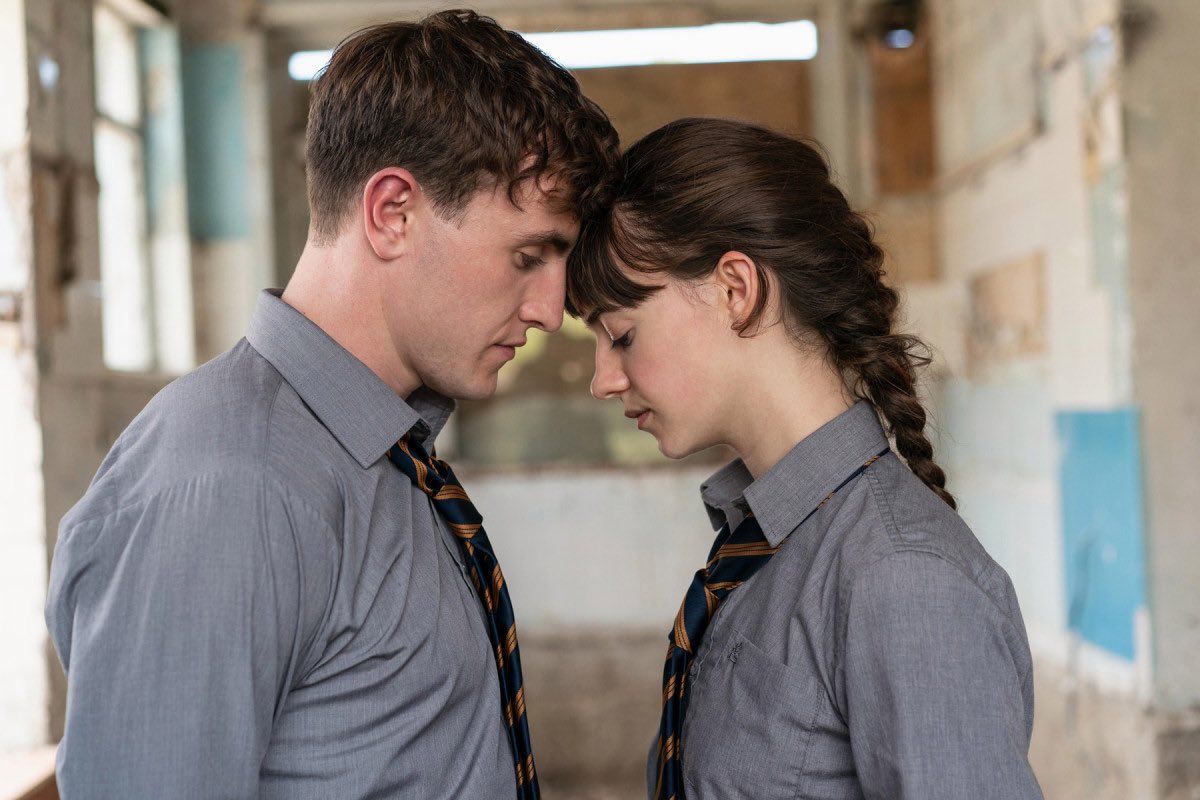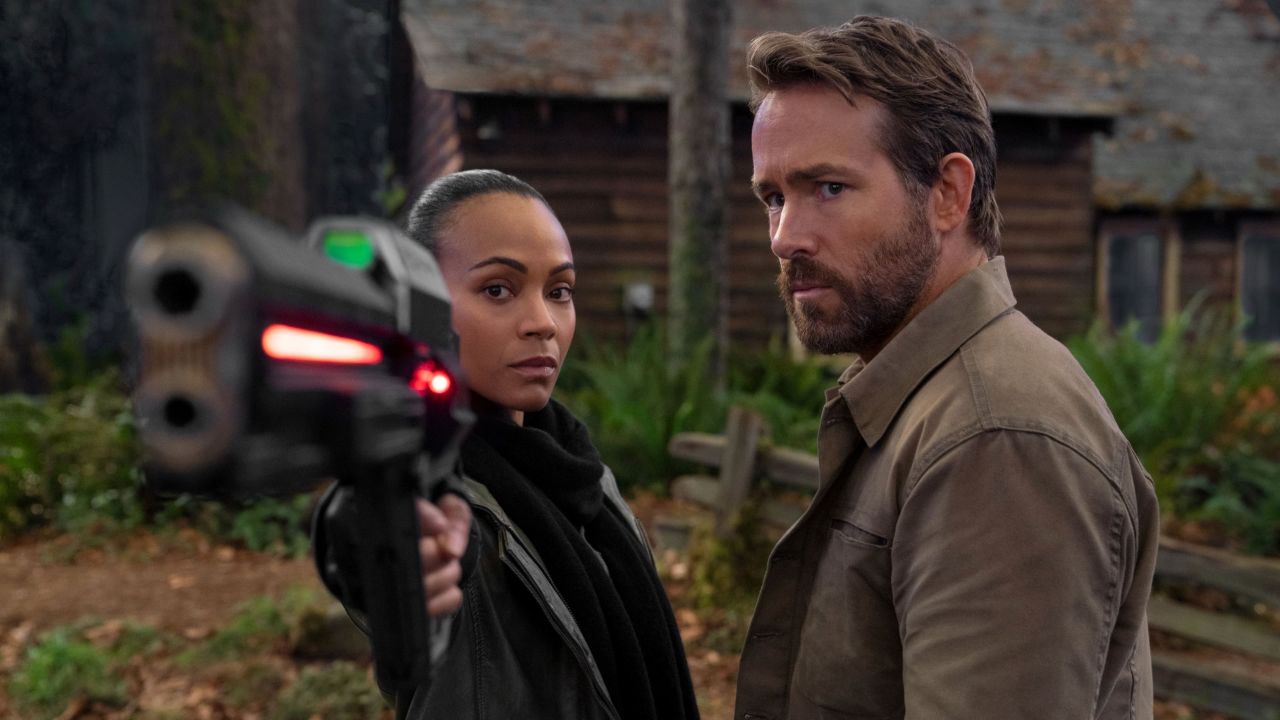We have seen teen movies and TV shows, like Atypical, Outer Banks, On My Block and many others, that grapple with teen angst and puberty, however, Sex Education has proved itself distinct with the angle it has set to explore. The TV series examines many teen issues regarding sexuality, love and identity. The newly released third season takes us back to the renowned sex school, Moordale Secondary School, and the issues left unsolved in the second season from Otis (Asa Butterfield) and Maeve’s (Emma Mackey) fragile relationship, to Jean’s (Gillian Anderson) pregnancy and the surprising turnaround of the famous bully, Adam Groff (Connor Swindells) and his relationship with Eric (Ncuti Gatwa) amidst others.
Searching for another show with angsty teens?
 Big Mouth is More Than a Show With Horny Teens
Big Mouth is More Than a Show With Horny Teens
Let’s face it, for every young Nigerian adult that follows this show, we get to see a theme that can never be embraced in our schools. The ideas that the Netflix series proposes is radical, as it addresses realistic problems young teenagers battle with and a world where everyone is accepted for who they are. But in a hypocritical country like Nigeria, for example, where sexual people are regarded as prostitutes whilst queer people are judged and even targeted under the law; the series discloses the reality that humans are sexual beings and this part of our life needs to be explored not bottled in. Now, there’s the ‘abstinence before marriage’ slogan, but people go against it anyway even with the unwanted pregnancy and STDs attached to it. This is the area Sex Education captures as it throws a bunch of horny teenagers in the mix, not in a means to deter or shame them from the act but to educate them on how to be safe with a keen consideration for their identity.

Image via Netflix
In the real world, Nigeria for example, the closest to sex talk in the school curriculum is Biology (The Reproductive Organs) and for other related subjects, where most teachers make it seem like the result of all teenage sexual affairs is unwanted pregnancy and STDs. The real question is why abstinence from the real talk when the possibility of engaging in this act is nearly impossible? Sex Education advocates for the course to be implemented in schools instead of deterring teenagers from it; educating and advising them seems to be a better and safer alternative. The antagonist in Sex Education season three, the new headmistress, Hope (Jemima Kirke), represents the set of people who think self-expression and having open communication about sex is inappropriate. However, apart from the openness that comes with sex talk in Sex Education, its greatest strength and accomplishment is how it celebrates diversity and people’s sexual identity. The character of Cal (Dua Saleh), a queer who spits in the face of tyranny, is a benchmark for people like her to cherish their differences and sexual identity.

Image via Netflix
Related:
 Normal People: An Overwhelming Love Story of Two Misfits
Normal People: An Overwhelming Love Story of Two Misfits
 Remembering the Times Nigerian Songs Were Used in Non-Nigerian Films
Remembering the Times Nigerian Songs Were Used in Non-Nigerian Films
Despite the addition of new characters like Cal, the latest season ascends in the way it moulds its old characters like, Mr Groff (Alistair Petrie), his son Adam, the insecure Isaac (George Robinson) and Maeve’s mum, Erin (Anne-Marie Duff); these are characters that viewers are likely to have disliked in the previous seasons. Nevertheless, we get to see their real self in this new season and each attests to the saying that there is always a story behind every villain. The personalities of these characters are explored and all one could feel for them is empathy and the power to come to terms with experiencing such feelings of sadness and disappointment. Ruby (Mimi Keene), Otis’ brief partner, is like many of us in real life, a character that seems to have it all—beauty, money and a problem-free life—but she covers up her insecurities and vulnerabilities with her sassy attitude. This is something that every human being faces; there is nothing like a problem-free life and it is how we address the problem(s) that makes us who we are—either your problem breaks you or you face it head-on.

Image via Netflix
Lastly, the new season gives a voice to many of the characters as they come of age while the previous seasons was more about them exploring their sexual lives. Most of the characters have all made decisions that hurt their other half in the aftermath of the latest season. In the words of Myles Munroe, “we live in a disposable, cast off and throw away society that has largely lost any real sense of permanence. Ours is a world of expiration dates, limited shelf life and planned obsolescence. Nothing is absolute”. In other words, do what works for you. Maeve’s decision to leave for America, Eric’s choice to break up with Adam, Maureen’s resolution to turn her husband away and Aimee’s long-awaited breakup depict that life is so much simpler and easier when you listen to yourself and follow your guts. Their relationships and sacrifices for themselves is a deep reminder that love is not life’s endgame and it should never hinder your true self and happiness.
“We are all gonna die; life is so short. So my point is, we should try and live in the moment because we don’t have long.
Kyle (Sex Education)
This is a famous line that we are quite familiar with in movies but I feel it should always be put out there to remind people of how fragile life is. Otis almost lost his mom in the series and all he could think of were all the words left unspoken and matters they never settled. So, live everyday like it’s your last, have fun, regret nothing and never let people bring you down. You only live once. Ciao!
You can share your thoughts in the comments section or on our social media accounts.
 Subscribe to our film and TV Google Calendar and newsletter here.
Subscribe to our film and TV Google Calendar and newsletter here.



3 Comments